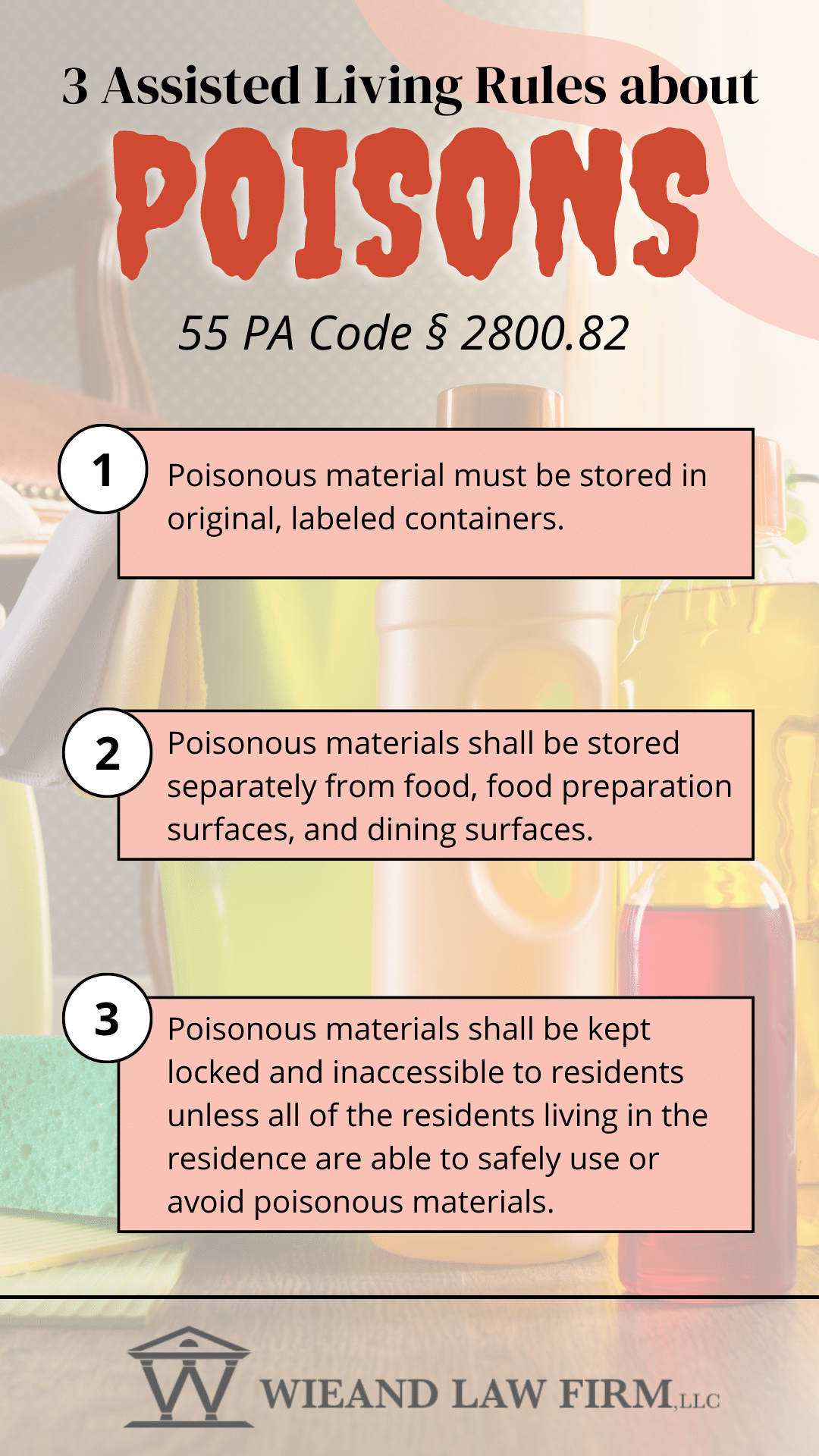 A Philadelphia assisted living neglect lawyer details how neglect at a California assisted living facility has left one resident dead and two residents hospitalized after ingesting toxic dishwashing liquid at Atria Park of San Mateo. The residents were all served the dishwashing liquid instead of juice. A 93-year old resident with dementia has now died from the incident, and the employees involved have been suspended as investigators try to determine how the situation occurred. According to a Philadelphia assisted living neglect lawyer, this situation is being closely scrutinized to determine if care failures may surmount to resident neglect.
A Philadelphia assisted living neglect lawyer details how neglect at a California assisted living facility has left one resident dead and two residents hospitalized after ingesting toxic dishwashing liquid at Atria Park of San Mateo. The residents were all served the dishwashing liquid instead of juice. A 93-year old resident with dementia has now died from the incident, and the employees involved have been suspended as investigators try to determine how the situation occurred. According to a Philadelphia assisted living neglect lawyer, this situation is being closely scrutinized to determine if care failures may surmount to resident neglect.
The resident who passed away was named as Gertrude Elizabeth Murison Maxwell. According to her daughter, Marcia Cutchin, the resident suffered severe blistering of her mouth, throat, and esophagus from ingestion of the toxic chemicals. Ms. Cutchin states that an Axia representative told her that the ingested chemicals were an alkaline cleaning solution. According to Ms. Cutchin, her mother was unable to drink independently and needed staff assistance to hold a cup to her mouth and tip it to drink.
Local authorities, including the San Mateo Police Department and California Department of Social Services Ombudsman are currently investigating the case.
Yes, nursing homes and assisted living facilities operate under rules and regulations aimed at resident safety. Failure to adhere to these requirements can result in resident injury. While state regulations may vary, it is an expectation that residents with dementia must be kept safe from toxic substances. Many residents with dementia are unable to identify a toxic substance and understand how to stay free from harm. Therefore, it is the responsibility of staff members to ensure that toxic substances are properly secured away from resident reach. An assisted living neglect lawyer believes that Atria’s failure to keep toxic chemicals away from residents with dementia may ultimately result in an assisted living neglect lawsuit.
Yes, an accident at an assisted living facility may be considered neglect. For senior living providers, such as nursing homes and assisted living facilities, neglect is commonly defined as a failure to meet an elderly resident’s basic needs. Nursing home residents are among the most vulnerable members of society and depend on the facility staff for their food, shelter, supervision, ADL care, and medical care. Neglect basically means that a nursing home or assisted living has failed to fulfill their obligations or duties to the resident.
In addition to these basic concepts, the federal government has spelled out specific regulations defining abuse and neglect for nursing home residents. The Omnibus Budget Reconciliation Act of 1987 (OBRA) states that residents have the right to be free from abuse, including verbal abuse, physical abuse, mental abuse, involuntary seclusion, and corporal punishment. The Health Care Finance Administration (HCFA) issued guidelines supporting OBRA legislation that defined neglect as a failure to provide goods or services necessary to avoid physical harm, mental anguish, or mental illness. Following this definition of neglect, a nursing home that fails to properly secure toxic chemicals to maintain resident safety may be liable for neglect.
Pennsylvania has regulations that Assisted Living facilities must abide by regarding poisons. According to Pennsylvania Code Title 55 § 2800.82, poisonous materials must:
California regulations requires that disinfectants, cleaning solutions, and poisons that can pose a danger for residents be stored where they are inaccessible to residents. An assisted living neglect lawyer shares that investigators in the Atria dishwasher liquid poisoning incident will need to determine if this regulation was followed.
If your loved one suffered serious injuries or died from abuse or neglect at an assisted living, nursing home, or other senior care facility, you may be able to file a lawsuit and seek compensation for their injuries. Nursing homes have an obligation to provide services to keep residents safe. Failure to adequately provide these services may be considered neglect. Examples of nursing home neglect can include:
The nursing home neglect lawyers and assisted living neglect attorneys at the Wieand Law Firm, LLC understand that care failures at senior care facilities can result in catastrophic accidents and injuries to vulnerable elderly residents. We aggressively represent for nursing home residents, and their families, to pursue compensation for their injuries or wrongful death.
Call today for a free consultation and speak directly with an attorney about your concerns. We will listen closely and discuss your legal options. If you decide to pursue a lawsuit, please note that our attorneys offer a contingency fee agreement, so that you only pay a fee if we win money for your case. Call 215-666-7777 or send a message via the form on this webpage.